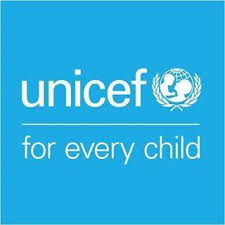A groundbreaking study has revealed that child marriage is costing Nigeria over ₦3.5 trillion annually and claiming tens of thousands of lives.
The research, conducted by the Childlight Global Child Safety Institute, is the first to calculate the economic and societal burden of child marriage in Nigeria.
Published in the journal Child Abuse and Neglect, the study highlights the devastating consequences of the practice, which affects 42% of Nigerian women.
In 2019 alone, child marriage contributed to the deaths of nearly 40,000 children under five, born to child brides, while approximately 3,489 adolescent girls died due to pregnancy and childbirth complications linked to early marriage.
The economic impact is equally stark. Women who marry as children earn 12% less than their counterparts, while child marriage reduces the likelihood of completing secondary or higher education by 23%.
Overall, the practice drains 2.43% of Nigeria’s GDP, with disability-adjusted life years (DALYs) lost to health complications from child marriage further exacerbating the issue.
The findings have prompted calls for a review of Nigeria’s Child Rights Act, which bans marriage under the age of 18 but remains unimplemented in some states.
The Child Solidarity Group, a Nigerian charity, welcomed the study, urging the government to strengthen protections for vulnerable children.
Emediong Akpabio, the group’s Chief Executive, noted that the COVID-19 pandemic has worsened the situation, pushing more girls out of school and into early marriages.
“From 12.5 million children in education emergencies, we now have over 20 million, with 60% being girls. This trend, coupled with an overburdened social protection system, is deepening the crisis,” he said.
Akpabio also advocated for incentives to support child marriage survivors in gaining education and ensuring their children complete schooling.
“Re-thinking the educational system could save Nigeria billions of naira lost to this crisis,” he added.
At the 1st Global Ministerial Conference on Ending Violence Against Children in Colombia, the Nigerian government pledged to end child marriage and female genital mutilation. A costed plan of action is set to be rolled out.
Professor Deborah Fry, Childlight’s Director of Data, emphasized the broader implications of child marriage.
“This practice perpetuates cycles of poverty and inequality, stifling national development. Ending child marriage is not only a human rights imperative but also an economic investment,” she said.
Lead author of the study, Dr. Xiangming Fang, highlighted the heavy financial toll. “Despite its prevalence, the economic burden of child marriage was previously underestimated.
This study sheds light on the immense price Nigeria pays for this practice. A prosperous future hinges on eliminating it,” he said.
The research, funded by UNICEF’s Nigeria Country Office, provides critical data to guide policymakers in addressing child marriage by 2030, a target under the Sustainable Development Goals.
Advocates are now pushing for a review of the 20-year-old Child Rights Act to address emerging threats, including those facilitated by harmful cultural practices and technology.
They argue that Nigeria’s commitment to ending child marriage must translate into concrete actions to protect its children and secure its future.
Do you want to share a story with us? Do you want to advertise with us? Do you need publicity for a product, service, or event? Contact us on WhatsApp +2348183319097 Email: platformtimes@gmail.com
We are committed to impactful investigative journalism for human interest and social justice. Your donation will help us tell more stories. Kindly donate any amount HERE




